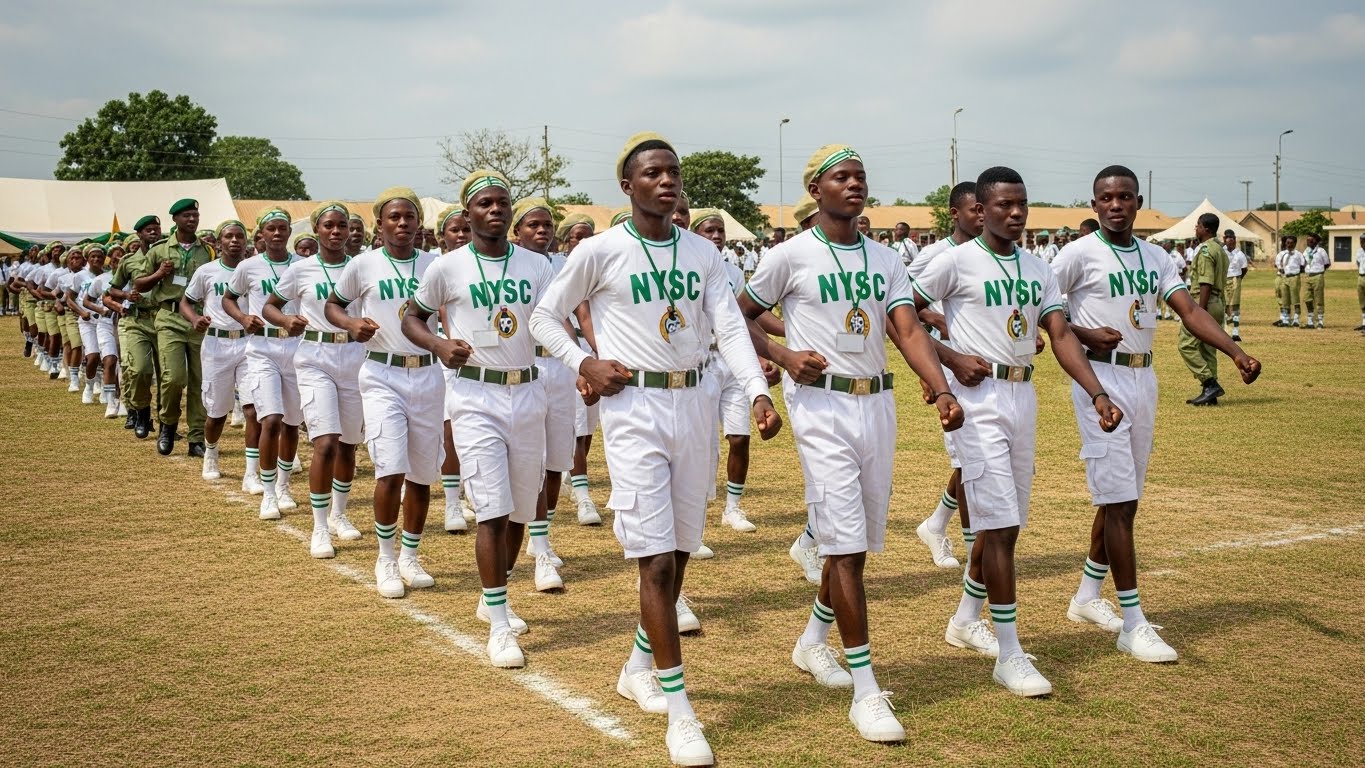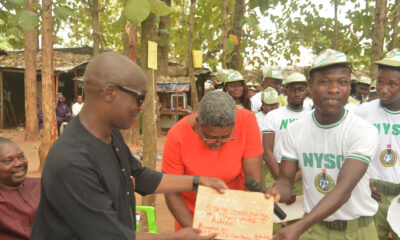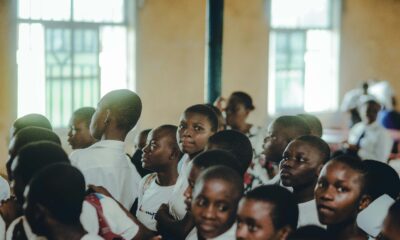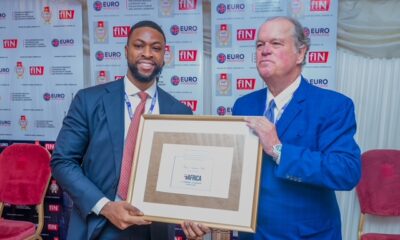Features
Thomas Nathan Ikipwen: How Wannune Camp Taught Me That National Unity is Possible

On the last morning at Wannune Tarka NYSC Orientation Camp in Benue, the bugle didn’t sound as annoying as usual. This was because we already knew that it would be the last time that the unlikable sound would wake us.
It was a bittersweet reminder that this chapter was coming to an end as everyone in the room was already awake by 3:00 am. There were random movements, loud sounds from luggage packing, and some people laughing loudly, mimicking memorable camp moments. After a long three weeks of exhaustion, pain, laughter and sacrifice, it finally came to an end. Camp experience was hell, but it was a strange, sweet hell we didn’t want to leave.
After the final parade and a heartfelt address from the NYSC state coordinator, Veronica Garba, we gathered according to our platoons to collect our posting letters. Emotions filled the air as some corps members were celebrating being posted to good LGAs, while others were disappointed and uncontrollably crying because of the outcome of their posting letters. The scene, if it had been a movie, would have been a Netflix blockbuster or an Oscar-worthy one. I was rather calm and undisturbed when I saw Ukum LGA on my letter, because I came to Wannune camp prepared to serve wherever I’m posted.
What broke me instead was knowing that it could be the last time I’d see Temmi again. A beautiful Yoruba girl in my platoon I had fallen deeply for. When Temmi came to say goodbye, I tried to be a hard guy, but the moment she walked away, I couldn’t hold back the tears that rolled down my cheeks. Her relocation to Oyo was approved, and it was painful that things had to end this way. I was left with no choice but to embrace the reality.
When our bus was full, we took off. As we drove toward Ukum, memories of Wannune flooded back, and if there’s one thing I can confidently take home from those experiences, it’s this: The only place I’ve ever seen Nigeria not divided by tribe, religion, or regional lines is in that Wannune camp.
At some point, it was us against the system that we completely forgot where we came from. My room in camp happened to be the liveliest, and also the most punished by the military men for always going against camp rules and instructions. I had brothers from all over the country: Ifeanyi, Jalo, Enang, Oluwalekaan, Tanko, Aoundofa (nicknamed Hangover), Gabriel and many more.
Jalo, a crypto guy from Katsina State, was one of the brainboxes of our room. His intelligence always amazed us. Especially our roommates from the Southern part of Nigeria who believed that almost everyone from the North was “Abokis.” But meeting someone like Jalo eradicated those stereotypes completely.
Ifeanyi’s generosity was another thing that stood out in our room. He would share anything, even if it’s a little. His selflessness clarified that the stereotype of Igbo men as stingy and greedy was merely an illusion. Our room in camp was a zone of no tribe, no religion and no region; just young Nigerians, united by experience.
NYSC tore down the wall of bias that we had. It proved to us that, despite most of the false narratives fed to us on religion and tribalism intolerance, Nigerian youths can live, work, laugh and thrive happily together. Wannune gave me hope. It clearly reflects the impact and transformation the NYSC scheme is bringing to Nigerian youths. I came to realise that Nigeria has the assets to revive the spirit of peaceful coexistence.
When I saw Ifeanyi and Jalo, two young men from opposite ends of the country with differing religious beliefs, become best friends, it truly opened my eyes. Tanko, Enang, Lekaan, and Chinedu shared laughter, meals, and even sleeping spaces without any prejudice. I witnessed the unity and harmony present in Wannune, and it touched something deep within me, changing my perspective. I realised that national unity isn’t just a myth; it’s a real possibility.






















